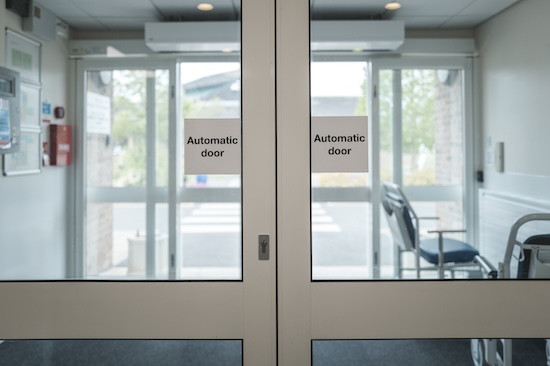Keeping patients in their community during treatment can be as effective as being isolated for weeks at a time
The effects of war on those who fight and witness it firsthand can linger long after peace has been made and the troops have come home. In Canada, it is estimated that 10 per cent of war-zone veterans will develop post-traumatic stress disorder (PTSD) while others will exhibit at least some of its symptoms.
Because PTSD comes in many forms and affects each person differently, treating it can be a challenge. Some patients benefit more from residential, in-treatment programs, while others are more suited for outpatient care. Others may thrive best in a system that mixes elements of both.
Such is the topic of a new paper in the Journal of Aggression, Maltreatment & Trauma by a team of researchers led by Concordia’s Walter Marcantoni. In it, they write that they found intensive outpatient programs (IOPs), in which a patient consults with a health professional daily while staying at home in their community, are as effective as inpatient treatment. In the latter case, patients are isolated to focus solely on recovery, usually for six to 12 weeks at a time, depending on the level of care needed. Both types of programs have better completion rates than standard outpatient treatment programs, where the drop-out level can be as high as 50 per cent.
“For patients, this means that there are options when it comes to receiving care,” says Marcantoni, an assistant professor in the Department of Psychology and the paper’s lead author.
Differences between veterans and serving members
Marcantoni and his team at the CIUSSS du l’Ouest-de-l’Île-de-Montréal looked at 32 studies of PTSD treatment in active military personnel and veterans in residential programs and IOPs. The majority took place in the United States, with the others set in the United Kingdom, Australia and Israel.
All the subjects in these studies met the criteria of PTSD and were often diagnosed with comorbidities like depression, anxiety and substance and alcohol abuse.
The inpatient and IOPs both offered various forms of psychotherapy, including cognitive processing therapy and cognitive behavioural therapy, usually in group settings. Both programs also offered complementary therapies such as psychoeducation, anger management, medication management and art therapy, among others.
“We found that the average changes that took place from intake to discharge in residential clinics and IOPs in improvement scores were basically the same. There was really no difference,” says Marcantoni, who is the head of the Health Technology Assessment Unit for the CIUSSS.
The researchers did note a striking difference in results between patients who were treated at privately run IOP clinics and those that were run by the US Department of Defense. They note that the privately operated clinics generally treat veterans, while the government-run ones only accept active military service members.
“At this point we can only speculate, but it seems that IOPs seem better suited to veterans than to active service members,” Marcantoni says. “There can be several reasons for this: there is still a stigma attached to having to undergo treatment, and for active members, treatment is usually not voluntary but ordered. For veterans, enrolling in these programs is entirely voluntary — they are doing it because they want to.”
Marcantoni says this is the very first paper comparing the efficacy of residential clinics and IOPs for PTSD. He hopes that future studies will examine the discrepancy in results from private and government clinics and see if approaches to treatment programs need to be adjusted based on the populations they are serving.
Ionela Gheorghiu, Hinatea Lai, Maggy Wassef, Adrian Mares and Sébastien Barbat-Artigas of the CIUSSS du l’Ouest-de-l’Île-de-Montréal contributed to this paper.
Read the cited paper: “Effectiveness of Residential and Intensive Outpatient Programs for the Treatment of Post-Traumatic Stress Disorder in Active Military Personnel and Veterans: A Meta-Analytical Review.”


